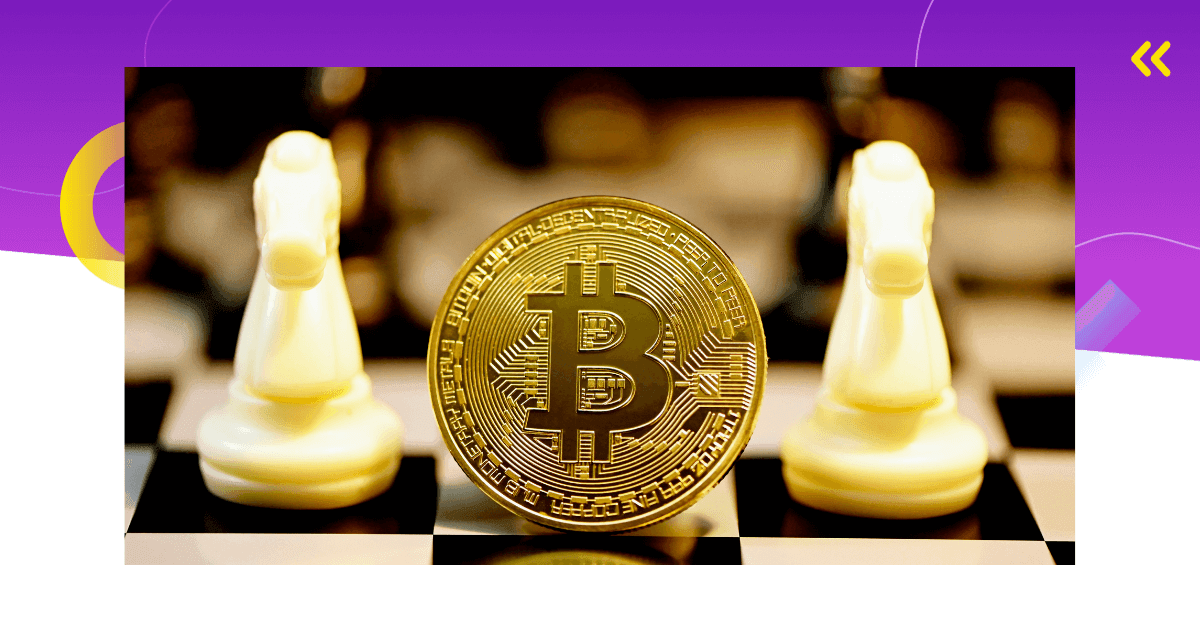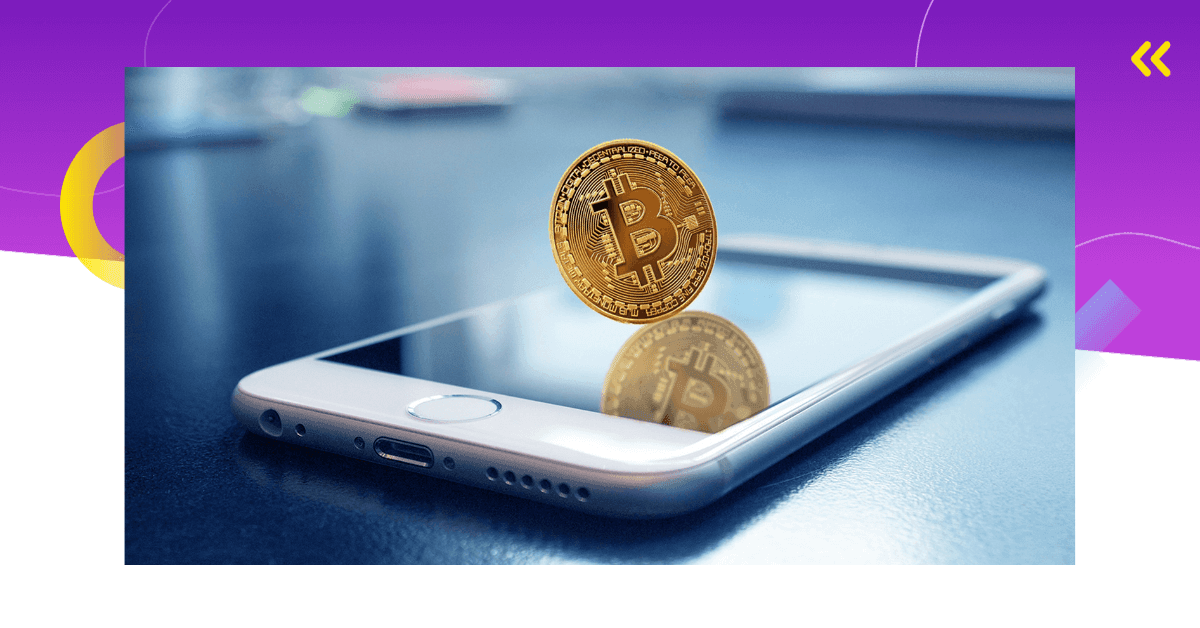If you’re struggling to understand and keep up with all the blockchain gaming talks, you need to check out this blockchain gaming glossary.
It consists of a list of all essential terms you need to know – blockchain basics, types of blockchain games, NFTs, decentralized finance, and more!
I’ve listed the terms in alphabetical order so that it’s easier to find the one you’re after.
Airdrop
Airdrop refers to the free distribution of NFTs or cryptocurrency. It’s a marketing strategy used to promote a project like a blockchain game or reward a community for participating.
Blockchain
A blockchain is a decentralized public database that primarily records network transactions and stores records of digital asset ownership. Blockchain technology enables blockchain games and other types of blockchain projects.
Crypto Coins
Crypto coins are a native cryptocurrency of a particular blockchain that usually mimic traditional currencies. For example, Ethereum.

Crypto Wallet
Crypto wallet is software or hardware used to store and manage cryptocurrency, as well as send and receive crypto. Most blockchain games require players to connect their wallets to play.
Cold Wallet
A cold wallet refers to a hardware crypto wallet – a physical device that stores cryptocurrency offline. Because the device doesn’t connect to the internet, some believe it’s more secure. Just don’t lose it. 🙂

Cryptocurrency
Cryptocurrency is a decentralized digital currency secured by cryptographic methods, which makes transactions secure and anonymous.
DAO
DAO stands for Decentralized Autonomous Organization and refers to a type of structure that has no central authority – the power is distributed among the community (usually token holders).
Many blockchain games use DAOs to strengthen player communities, reward players, and allow them to vote on important decisions.
DApp
The term dApp stands for decentralized application and it describes blockchain-based autonomous open-source apps. Some popular dApps include UniSwap and OpenSea, as well as blockchain games like Splinterlands.
Decentralization
According to the Cambridge dictionary, decentralization refers to “moving control from a single place to several smaller ones”. It’s one of the buzzwords that captures the essence of web3.
Decentralized Gaming
In the context of gaming, blockchain technologies enable games to become decentralized and allow players to have a say in how the game evolves.

DeFi (Decentralized Finance)
DeFi is an alternative to traditional centralized financial systems based on a peer-to-peer system that doesn’t rely on intermediaries and uses blockchain technology to provide various financial services (e.g., trading, borrowing, lending).
DEX (Decentralized Exchange)
A DEX (decentralized exchange) is a type of dApp (decentralized app) that works within the framework of DeFi (decentralized finance). It enables peer-to-peer trading of cryptocurrencies without the need for an intermediary.
Top decentralized exchanges include UniSwap, PancakeSwap, and Sushi.
Fungible Tokens
Fungible tokens are assets that are divisible, interchangeable, and not unique. For example, cryptocurrencies like Ethereum are fungible because one ETH is equal to all other ETH. The same goes for fiat currencies like the US dollar.
GameFi
GameFi is a portmanteau of the words game and finance. While it primarily refers to play-to-earn blockchain games, because of the financial incentive, it has become an umbrella term for blockchain games in general.
Gas
In the blockchain ecosystem, gas refers to blockchain network fees that are given as an incentive to people who stake their assets and validate transactions. For example, Ethereum gas fees.
Governance Tokens
Governance tokens are a method that enables blockchain projects like blockchain games to decentralize governance and represent a person’s stake in a particular decentralized organization. People who hold governance tokens gain the right to vote on how the project will be developed.

Hot Wallet
Unlike a hardware cold wallet, a hot wallet refers to software that’s connected to the internet. Its purpose is to store and manage cryptocurrency. The most popular hot wallet is MetaMask.
IGO (Initial Game Offering)
Initial game offering refers to fundraising in blockchain games. In this type of crowdfunding, people invest in an early-stage game and get rewarded with NFTs or other in-game items or assets.
Liquidity Pool
A liquidity pool is a collection of crowdsourced digital assets used to provide liquidity to blockchain games and decentralized platforms.
Liquidity Provider
People can provide liquidity to blockchain games by staking their tokens. This is also a passive income opportunity, as staking is incentivized by various perks like getting more of the staked token.

Metaverse
The metaverse is most commonly imagined as a collection of interoperable virtual worlds accessed through a VR headset. At the moment, we have metaverse games like The Sandbox where players use avatars to interact with a virtual world.
Minting
In the context of NFTs, minting refers to the process of creating a new digital asset on a blockchain network. In other words, digital files are converted to digital assets so they can be purchased and traded.

Move-to-Earn Games
Move-to-earn games are a type of blockchain game that reward people with crypto for moving and being active. For example, STEPN and Step App.
NFT
The term NFT stands for non-fungible token and it describes a unique and immutable digital asset recorded on the blockchain that has only one owner, i.e., the ownership is easily identifiable.

NFT Collection
An NFT collection is a compilation of limited-number NFTs released by an artist, group of artists or a blockchain project. Most commonly, NFTs within a collection follow the same theme and artistic style.
NFT Drop
The term NFT drop simply means when the non-fungible tokens will be released, i.e., when the minting will occur.
NFT Farming
The next blockchain gaming glossary term, NFT farming, refers to a type of liquidity providing where NFTs are staked to get staking rewards.
NFT Floor Price
NFT floor price refers to the lowest price of an NFT from a particular collection. In other words, it’s the least amount of money you’ll need to spend to become an owner of an NFT from a collection.
It can also be used as a metric to determine the current value of a collection.

NFT Games
This is another term for blockchain games, as most of them use NFTs and allow players to acquire them.
NFT Marketplace
An NFT marketplace is a platform that allows you to buy and sell non-fungible tokens. Some of the most popular NFT marketplaces are OpenSea, Rarible, and LooksRare.

NFT Mystery Box
An NFT mystery box is a box that contains a unique random NFT or several of them. Many blockchain projects are releasing limited-edition NFT mystery boxes that contain NFTs of various rarity levels.
Play-to-Earn Games
Play-to-earn games are a type of blockchain game that allows players to earn digital assets that have real-world value and can be exchanged for cash.
Play-and-Earn Games
While play-to-earn games focus more on the earning part, in play-and-earn games, the focus is more on playing and having fun, while the ability to earn is an additional perk.

Pay-to-Earn Games
Pay-to-earn games are similar to play-to-earn games in the sense that they’re blockchain games that allow players to earn. However, the difference is that pay-to-earn games require players to make a small investment first (most commonly by purchasing an NFT).
Play-and-Own Games
Play-and-own or play-to-own is another variation of play-to-earn games where the focus is on the gameplay and ownership of in-game assets with the goal of increasing the sustainability and stability of blockchain games.
Proof-of-Stake
Proof-of-stake is a blockchain verification method for confirming transactions. A random validator who has staked tokens is chosen to validate transactions and gets rewarded for it.
Proof-of-Work
Proof-of-work is the original blockchain verification method that was first used by Bitcoin. With this method, miners compete to be the first to add new transaction data by solving a complex puzzle and they get rewards for it.

Rarity
In the context of NFTs, rarity is an important metric that tells us how uncommon an NFT is relative to other NFTs from the collection. A rarity of an NFT is closely related to its value – the rarer it is, the more valuable it is.
Roadmap
Blockchain games and similar projects use roadmaps that consist of various milestones and goals that let the community know how the project will evolve.
Rug Pull
Rug pull is a term used in NFT and crypto to describe a situation when the team behind a project suddenly abandons the project and disappears with the funds.
Staking
Staking refers to locking up your coins or tokens where you can’t use them for some time and receive more coins or tokens in the future as a reward.
It can come in many forms, but primarily, we’re going to talk about participating in the proof-of-stake process, staking in liquidity pools, and yield farming.

Tokenomics
Tokenomics is an amalgamation of token and economics and refers to various economic elements and characteristics of a token. For example, token supply, what gives it value, incentives for token holders, etc.
Tokens
Tokens are smart contracts with various use cases that don’t have their own blockchain but are built on top of another blockchain, which makes them different from crypto coins. In other words, tokens are using the existing infrastructure of a blockchain.
For example, USDT, MATIC, LINK, and MANA are tokens on the Ethereum blockchain.
Utility Tokens
In the context of blockchain gaming, utility tokens can provide holders with access to various features and additional benefits.
For example, SAND is a utility token for The Sandbox – it’s used for transactions and interactions in this metaverse game.

Virtual Land
Many metaverse games and other types of blockchain gaming projects offer players virtual land plots for purchase in the game universe. Land usually comes in the form of a non-fungible token, which means it’s unique and has real-world value.
Web3 Games
Web3 games is another term for blockchain gaming often used interchangeably with GameFi, NFT games, crypto games, and play-to-earn games.
Whitepaper
Most blockchain games release a whitepaper – a document that contains all information about the project, including gameplay, tokens, NFTs, land, how to earn rewards, etc.
Whitelist
Whitelist refers to a group of people that were chosen to get exclusive benefits. For example, most NFT projects have exclusive whitelist NFT presales.







Comments